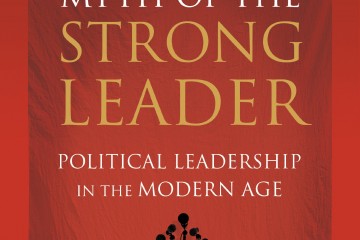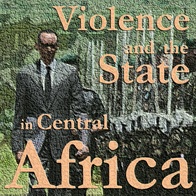
‘The Myth of the Strong Leader’ by Archie Brown
Just under a decade ago, Archie Brown highlighted several factors that he thought limited the explanatory power of comparative politics as an academic discipline. Such factors included undue emphasis on studying democracies at the expense of autocracies, a lack of methodological pluralism, inadequate attention given to understanding political leaders, its separation of domestic and international relations, and its increased isolation from the “real world of politics” that the discipline sought to explain.[1] ‘The Myth of the Strong Leader’ is a book that addresses all of these criticisms demonstrating both erudition on behalf of Brown and a keen ability to practice what he preaches. This book may well be a significant point of reference to political scientists and the general public. …

What would a constitutional convention for the UK look like?
In the wake of the Scottish referendum, the idea of a constitutional convention is gaining popularity. It appeals to the public and the Conservatives are now the only major party resisting a convention in principle. However, as has been discussed on the UCL Constitution Unit blog, the process of realising a convention that can deliver subsequent reform is likely to be fraught with difficulties. If Labour, the Liberal Democrats, the Greens or the SNP were pushed to define the nature and purpose of a UK constitutional convention, it is almost certain that any consensus would fall apart very quickly. At a recent Constitution Unit seminar, Dr Alan Renwick, Reader in Politics at Reading University and author of After the Referendum: Options for …

Valorised and Vilified: What Do ‘Citizens’ Do? Initial Linguistic Reflections
It is clear that debates about ‘who’ citizens are (as well as normative claims about who they ‘should’ be) are important to understanding the politics of citizenship. However, reflecting on the remit of this special series on ‘Migration and Citizenship’, another fundamental question occurred to me: what do citizens do? Describing the kinds of actions and activities in which citizens—however we may define them—reportedly engage could open further discussion about the nature of citizenship itself.
In my current work with the Centre on Migration, Policy, and Society (COMPAS), I focus on the ways that British newspapers talk about migration issues and relate these narratives to public perceptions and migration policy changes. Using techniques from corpus and computational linguistics, which enables researchers to analyse large amounts of text, I look for (ir)regularities and significant patterns of words. These contextual patterns, called ‘collocations’, can provide insight into a concept: one of the major contributors to linguistics, John Firth, famously expressed this feature of language when he said ‘you shall know a word by the company it keeps’. Applying Firth’s guiding principle to study of UK press portrayal of migrant groups reveals that, in the case of immigrants and asylum seekers, their company is relatively negative. Dr Scott Blinder and I showed that from 2010-2012, the British national press most often described ‘immigrants’ as ‘illegal’ while portraying ‘asylum seekers’ as ‘failed’.
But what about citizens? What does this group of people reportedly do in the context of migration coverage?

On Smith Commission’s proposals on Scottish governance
The Report of the Smith Commission on further devolution of powers to the Scottish Parliament is a modest document – only 28 pages long. But it packs a big punch. In summer 2014, Lord Smith delivered the Commonweealth Games in Glasgow without fuss and to budget. By some magic, he has now got all five parties in the Scottish Parliament to agree to a set of proposals, which the UK Government also endorsed as soon as they were published on 27 November. The process involved some huge compromises, on all sides. Smith got all-party agreement to: Embed the Scottish Parliament so that it cannot be abolished by an Act at Westminster; Make statutory the rules for inviting one parliament to …

DevoMix: localism and the devolution debate
Considering a wide range of media reports and commentaries on the UK’s ongoing devolution debate – do the solutions politicians seem to be offering genuinely address the issues as seen by local people?
In recent weeks, the media has been awash with articles and reports about proposed new ways of governing different parts of the UK. Clearly, the Scottish referendum has awoken a sleeping giant – something that our national political class should ignore at its peril. Because devolution goes to the heart of the localism debate, we’ve put together a representative cross-section of what’s out there.

Citizen enforcers? Implementing immigration controls through devolution and allegation
In recent years there has been an increasingly systematic integration of immigration controls into a range of institutions. The ability to access healthcare, social housing, benefits and legal aid, to seek employment, open a bank account, obtain a driving license, and rent a property have each been tied to immigration status. This linkage is mediated by more than a binary between legality and illegality. The regulation of mobility through legal frameworks at the European and international level, as well as the domestic, has generated a range of rights – to reside, of abode, to work, to rent – that are shaped by the interaction of multiple statuses – “EEA national”, “asylum seeker”, “habitual resident”, “jobseeker”, “worker”, “self-sufficient person”.
The rights and entitlements of citizens, as well as migrants, are curtailed and impacted by immigration controls. A citizen cannot claim means-tested benefits without proving habitual residence, they cannot marry a non-EEA national without verifying the partnership’s legitimacy in the eyes of the state, and they cannot bring this spouse into the UK without earning over a minimum income threshold. More broadly, citizens cannot avoid immigration controls without first proving that they are not subject to them.
It is important to understand and reflect upon the consequences of these controls. However, it is also important to think about where the responsibility for their implementation lies. As immigration controls are integrated in an increasingly systematic way into the workplace, university, school, hospital, jobcentre, letting agency, registry office and bank they are pushed away from the centralised state and into the community. This entails both a diversification and a shift in the actors compelled to put them into practice on the ground. Last week’s European Court of Justice decision on the Dano v Jobcentre Leipzig case brings this into focus. For the individual who cannot be subject to formal immigration controls but who can be excluded from social benefits if economically inactive, immigration enforcement responsibilities fall not to the immigration officer but to the frontline public service worker.

Citizenship and identity: The new Britons in an age of resurgent Englishness
In the 1990s, commentators across the political spectrum observed the rise of civic British national identity in the UK. Both the Major and Blair governments promoted “active citizenship” and rolled out polices such as Citizenship Ceremonies for the naturalised and citizenship education in schools – with the civic republican philosopher Bernard Crick a significant influence over many of these reforms. From a very different angle, the Britpop moment and “cool Britannia” brand made the Union Jack fashionable. A confident multiculturalism and relaxed, mongrel Britishness was part of the zeitgeist.
From the vantage point of 2014, that moment seems very distant. In the last decade, we have seen instead a resurgence of the infra-national identities of the UK’s constituent countries: the renaissance of Scottishness in Scotland, the rise of Welshness in Wales, and – much less reflected upon – the return of Englishness in England.
The return of the English
The 2011 Census included a national identity question. It showed that, in England, Englishness is the predominant national identity, expressed by two thirds of the population (with 58% choosing only English identity), while just 29% identify with Britishness (19% choosing only British identity).
For many, this kind of Englishness is probably expressed activities such as cheering on (or moaning at) English sporting teams. But we have also seen its political mobilisation: in resentment at Scottish power in Westminster, in the sinister street theatre of the English Defence League and its offshoots, and in the rise of UKIP.
It is important, however, to note the geographical and generational dynamics of this resurgent Englishness.

Why is important to understand the impact and responses required for sexual violence and torture survivors in conflict and post-conflict countries in Africa?
Since 1998 I have been carrying out applied research with colleagues and African organisations with survivors of sexual violence and torture. This research argues that sexual violence perpetrated in conflict and post-conflict settings causes devastating effects to individuals as well as whole communities. It results in extensive damage to survivors’ psychological, reproductive and gynaecological health. Ongoing research reveals that more women and girl-children survive conflicts than are killed; yet with tremendous wounds to their bodies and minds; assaults on their dignity, their feelings of self-worth and their future. In contrast, there are rarely consequences for the perpetrators. Applied research carried out in Uganda, Liberia and eastern Democratic Republic of Congo with colleagues and African organisations, argues that sexual violence is not solely a war crime and although extremely prevalent during conflicts, my research argues it has contaminated the post-conflict domestic sphere with high levels of community-perpetrated domestic violence and rape, particularly against young girls.
Survivors’ shame and stigma is exacerbated by severe social rejection, particularly for women and girls who become pregnant from rape, former abductees and those with AIDS and HIV infection. Many resultant physical and mental health problems are not treatable by the grossly over-stretched and under-resourced health care systems. Capacity building within primary health care and justice services needs to address psychological trauma, increase resilience and recovery through support groups, trauma counselling and improvement to mental health policies. It is vitally important that service providers (who have also often experienced human rights abuses) are assisted to develop peer support and supervision groups and receive culturally sensitive training in supporting traumatised survivors and their children born from rape. In conjunction with greater protection for their work, and regular salaries this would assist to prevent ‘burn out’.









